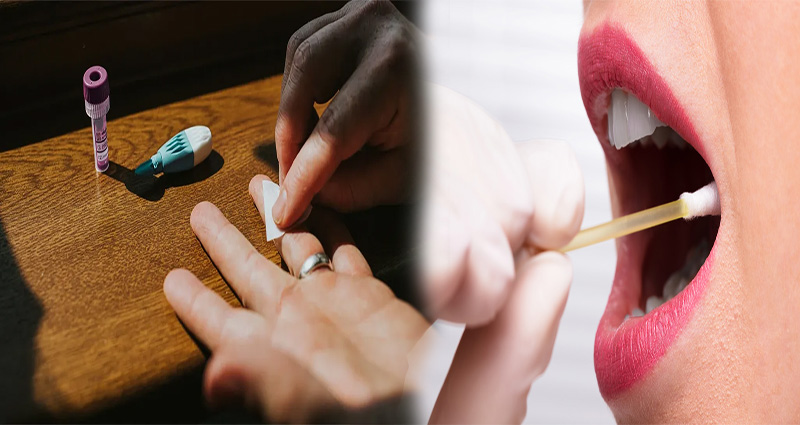Hormones are chemicals that are produced by your body’s endocrine glands and released into the bloodstream. Hormones control the way your body functions, including metabolism, growth, energy levels and even moods. While it may not be necessary to test hormone levels for every person, there are times when it can be helpful to know exactly what’s going on inside your body. There are many different tests for hormones available today with varying accuracy levels. The most common tests include testosterone and estrogen testing as well as DHEA testing (which is used to measure adrenal function).
What Are Hormones?
Hormones are chemical messengers that are produced in the endocrine system. They control many of the body’s functions, including metabolism and growth. Hormones can be produced by the body or taken as supplements. Hormone deficiencies can cause problems with mood swings and weight gain, so it’s important to test your hormone levels regularly if you suspect there may be a problem with them.
The Importance of Testosterone and Estrogen
Testosterone and estrogen are both important for health.
Testosterone is a male sex hormone, while estrogen is a female sex hormone. Both hormones are necessary for normal sexual development, but they also play other roles in the body: testosterone helps build muscle mass and strength; estrogen helps regulate fat storage and blood pressure levels in women.
Testing your levels of these hormones can help you determine if there’s an imbalance that might be affecting your health or fitness goals–for example, if you’re trying to build more muscle mass but aren’t seeing results despite working out regularly at the gym every day.
Testosterone Testosterone
Testosterone is a hormone that’s produced in the testicles. It’s important for reproductive health and muscle growth, among other things. Testosterone levels are highest in men, who have about 10 times more than women do on average (though there are some exceptions to this rule).
Testosterone can be tested at home using a saliva sample or blood test. The results will give you information about your testosterone level–you’ll see it as ng/dl or nmol/L–and help you determine if it needs adjusting with supplements or other treatments
How to Test Your Testosterone Levels
If you’re worried about your testosterone levels, there are several ways to test them. The most common method is to have a blood test done at the doctor’s office or hospital. This can be expensive and inconvenient, but it will give you accurate results.
Another option is home testing kits that measure hormone levels through urine samples. These kits are available online and in stores like CVS and Walgreens (some require a prescription). They aren’t as reliable as having a professional do the test, but they’re easy to use and relatively inexpensive compared with other options–and if nothing else, they’ll give some peace of mind when paired with other lifestyle changes such as diet or exercise routines that may affect hormone production over time
Estrogen Test
Estrogen is one of the primary female sex hormones and is produced in the ovaries, adrenal glands, and fat cells. Estrogen levels are highest during puberty, pregnancy and menopause. This hormone helps maintain a healthy heart, brain and bones by regulating metabolism (the process of converting food into energy) as well as controlling bone strength by helping to build new bone tissue. It also helps protect against heart disease by lowering cholesterol levels in your blood vessels while increasing HDL (“good”) cholesterol levels.
Estrogen deficiency can lead to osteoporosis–a condition where bones become brittle or weak due to low mineral density–as well as other health problems such as hot flashes when menopause occurs later in life; irregular menstrual cycles; vaginal dryness which affects sexual pleasure during intercourse; headaches caused by fluctuating estrogen levels affecting neurotransmitters (brain chemicals responsible for mood control); excessive weight gain around your waistline due to having more belly fat than hip fat due to lower metabolism rates caused by low thyroid function caused by insufficient thyroid hormone production
If you’re experiencing any of these symptoms then it may indicate an imbalance between testosterone/progesterone ratios which could indicate hormonal imbalances resulting from poor diet choices such as eating too many processed foods containing artificial sweeteners like Splenda which contain anti-thyroid properties thus causing underactive thyroid symptoms such as fatigue depression weight gain etc…
DHEA Test
DHEA is a hormone that is produced by the adrenal glands, and it can be tested in the blood, saliva or urine. In men and women alike, DHEA levels decline with age: they tend to peak around age 20-25 and then start dropping steadily thereafter.
DHEA is also known as an “anti-aging” hormone because it helps maintain brain function during aging (1). It’s sometimes called “the happiness hormone” because it stimulates serotonin production in your brain (2). The more serotonin you have available for use by neurons throughout your central nervous system, the happier you feel!
Hormone testing is a helpful way to track your hormone levels.
Hormone testing is a helpful way to track your hormone levels. It can help you determine if any problems are occurring, and can also give insight into how well your body is handling the changes of menopause or perimenopause. If you have issues with mood swings, weight gain/loss, hot flashes or night sweats (or other symptoms of menopause), then it’s important to get tested regularly during this time.
If you find that there are problems with any of these hormones: progesterone, estrogen or testosterone; then talk with your doctor about treatment options that may be available for treating these imbalances in order to feel better again!
Hormone testing is a great way to track your hormone levels. It’s not just about knowing what they are, but also understanding what they mean and how they affect your health. By testing regularly, you can catch problems before they become serious issues that require treatment or surgery. You may even be able to prevent some diseases by keeping tabs on these important chemicals in your body!









